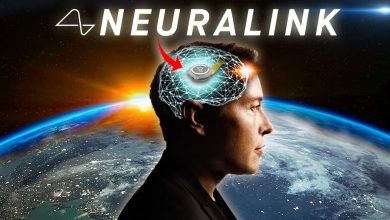When and How Will the AI Singularity Emerge?
The AI Singularity refers to a hypothetical future event where artificial intelligence reaches a level of intelligence that surpasses human capabilities.
 The concept of the AI Singularity has fascinated scientists, technologists, and futurists for decades.
The concept of the AI Singularity has fascinated scientists, technologists, and futurists for decades.
It represents a hypothetical point in the future where artificial intelligence surpasses human intelligence, leading to exponential growth and potentially profound societal changes.
While the exact timeline and nature of the AI Singularity remain uncertain, this article explores some of the key factors and potential scenarios that could contribute to its emergence.
Inflection Point
The AI Singularity refers to a hypothetical future event where artificial intelligence reaches a level of intelligence that surpasses human capabilities.
It is often associated with the concept of the technological singularity, a point where technological progress becomes uncontrollable and irreversible.

Artificial intelligence has made significant advancements in recent years. Machine learning algorithms, deep neural networks, and natural language processing have enabled AI systems to perform tasks that were once considered exclusive to human intelligence. However, despite these achievements, we are still far from achieving true artificial general intelligence (AGI) – the ability of an AI system to understand, learn, and apply knowledge across a wide range of tasks.
Superintelligence and AGI
One of the key factors that could contribute to the emergence of the AI Singularity is the exponential growth of technological progress.
As computing power continues to increase and new breakthroughs in AI research occur, the development of AGI becomes more feasible. Additionally, the concept of recursive self-improvement, where an AI system can improve its own capabilities, could lead to rapid advancements and potentially accelerate the path to the Singularity.
Superintelligence, defined as an AI system that surpasses human intelligence in virtually every aspect, is often considered a crucial milestone on the path to the AI Singularity. Once AGI is achieved, the potential for rapid self-improvement and exponential growth in intelligence becomes a possibility. The development of superintelligent AI systems raises important ethical and safety concerns, as their actions and decisions could have far-reaching consequences.
Possible Timeline for the AI Singularity
Predicting the exact timeline for the AI Singularity is challenging, as it depends on numerous factors and uncertainties. However, experts and researchers have proposed various scenarios:
- Short-term Scenario (10-20 years): Some experts believe that AGI could be achieved within the next couple of decades, driven by exponential progress in AI research and breakthroughs in hardware capabilities.
- Mid-term Scenario (20-50 years): This scenario suggests that AGI development may take a bit longer, with significant advancements in AI technology and increased understanding of human intelligence required.
- Long-term Scenario (50+ years): In this scenario, the development of AGI is expected to take several more decades or even centuries, as researchers face complex challenges related to consciousness, ethics, and understanding human cognition.
Implications and Considerations
The emergence of the AI Singularity would have profound implications for society, economy, and humanity as a whole. Some of the key considerations include:
- The impact on the job market and employment as AI systems potentially replace human workers in various industries.
- Ethical concerns surrounding the development and use of superintelligent AI, including the potential for unintended consequences or malicious use.
- The need for robust regulations and policies to ensure the responsible and safe deployment of AI technologies.
- The potential for scientific and technological advancements that could solve complex global challenges, such as climate change or disease eradication.
Conclusion
The emergence of the AI Singularity represents a fascinating and potentially transformative future event. While the exact timeline and nature of its emergence remain uncertain, ongoing advancements in AI research and technology bring us closer to the possibility of achieving artificial general intelligence. As we navigate this path, it is crucial to consider the ethical, societal, and safety implications to ensure that the AI Singularity benefits humanity as a whole.



